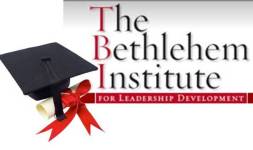 This is a surprising but encouraging development. For 10 years now, Bethlehem Baptist Church (pastored by John Piper) has offered one of the finest church-based Bible institutes around. The Bethlehem Institute teaches a variety of courses designed for everyone from the average Joe (or Jane) in the church pew to the pre-seminary young person preparing for full time ministry. They have had a wonderful apprenticeship program with intensive classes which is accepted as 1 or more years of seminary credits at several leading theological seminaries.
This is a surprising but encouraging development. For 10 years now, Bethlehem Baptist Church (pastored by John Piper) has offered one of the finest church-based Bible institutes around. The Bethlehem Institute teaches a variety of courses designed for everyone from the average Joe (or Jane) in the church pew to the pre-seminary young person preparing for full time ministry. They have had a wonderful apprenticeship program with intensive classes which is accepted as 1 or more years of seminary credits at several leading theological seminaries.
Recently, the institute partnered with Northwestern College to offer a freshman year of college at a discounted price, taught at Bethlehem Baptist by our TBI instructors. Now, however, God has blessed us significantly, to allow the institute to become a College and Seminary. The Desiring God blog recently highlighted the freshman year of college program and also mentioned the news of a 4 year program plus a seminary just yesterday, so this is still breaking news.
Last night the announcement was made that in next week’s Wednesday church service, Pastor John will explain the vision for the new College and Seminary. I’m really excited about this, as I have a few TBI classes under my belt, and am currently taking 1st year Hebrew through the institute. The quality of education is superb, and the commitment to a conservative approach to the Bible, as well as the priority of the local church, is singular.
With this announcement, when the details are fully released, I’m sure that the doors will open for even more poeple to come and study here. I would encourage anyone who is checking out seminary options to pay close attention to this option.

 I subscribe to
I subscribe to